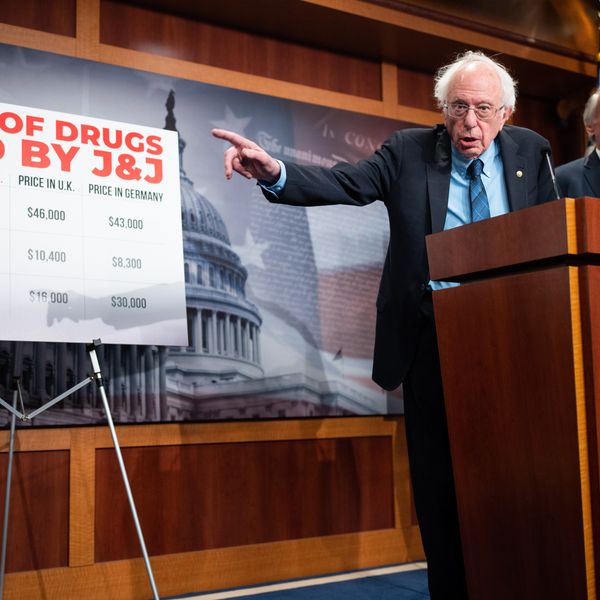Just about everyone by now knows how the drug industry works
to poison the minds of American doctors-not that many of them have
resisted drinking the Kool-Aid, which comes in the form of ego-tripping
awards, junkets, dinners, research funding, and cash in exchange for
endorsing or prescribing the latest and most lucrative drugs. But even
against this backdrop of sleaze, the latest news on the ties between
Big Pharma and Big Psych could take your breath away.
It turns out that not just some, but most
of the shrinks who wrote the American Psychiatric Association's most
recent clinical guidelines for treating depression, bipolar disorders,
and schizophrenia-which together account for $25 billion
in prescription drug sales annually-had financial ties to drug
companies, according a study to be published in Psychotherapy and Psychosomatics, as reported in the Boston Globe.
Summarizing the findings, which were compiled by researchers largely from public records, the Kaiser Daily Health Policy Report states:
According to the study, 18 of the 20 authors of the
guidelines had at least one financial tie to drug companies. Twelve
authors had ties in at least three categories, such as consulting,
research grants, speaking fees or stock ownership, the study found. In
addition, the study found that all of the authors of schizophrenia and
bipolar guidelines had relationships with the drug industry, while 60%
of the authors of the depression guidelines had such connections.
According to the study, more than 75% of the authors received funding
for research from drug companies. In addition, one-third of the authors
served on the speakers' bureaus of drug companies, the study shows.
As anyone who's suffered from any kind of mental health problem
knows, treatment for these kinds of problems is a highly inexact
science. A shrink can't give you a blood test or an MRI to figure out
precisely what's wrong with you. So it's often a case of diagnosis by
prescription: If you feel better after you take an anti-depressant,
it's assumed that you were depressed; if you don't feel better, well,
then maybe they'll try you on an anti-anxiety pill, or a low dose of
a bipolar drug, and see how that works.
As one of the researchers for the study put it, "the lack of
biological tests for mental disorders renders psychiatry especially
vulnerable to industry influence." For this reason, she argues,
it's particularly important that the guidelines issued
by psychiatry's leading professional organization be compiled "on the
basis of an objective review of the scientific evidence"-and not on
whether the doctors writing them got a big grant from Merck or own
stock in AstraZeneca.
Perhaps there's another reason why these conflicts of interest are
so extreme in the field of mental health. You would expect that after
news like this, confidence in the psychiatric profession would drop
through the floor, and patients would begin to take their shrinks'
diagnoses with a boulder of salt. But many psychiatric patients are
desperately ill, highly vulnerable, and not in any position to be
skeptical medical consumers.
A growing body of evidence suggests that the drug companies
purposefully push doctors to push drugs on exactly these types of
patients-the ones who are least equipped to push back. Look at the
recent case of pharmaceutical giant Eli Lilly, which agreed to pay a record $1.4 billion dollars to
settle charges that it illegally marketed the anti-psychotic drug
Zyprexa as a treatment for Alzheimer's and other forms of dementia
in elderly patients. This despite the fact that the drug was not only
unapproved for this "off-label" use, but had also been shown to cause
obesity and diabetes-as this former Eli Lilly rep explains.
Now, $1.4 billion might sound like a tough punishment, until you find out that Lilly's total sales of Zyprexa have
topped $37 billion. And at least some of those sales were thanks to
doctors who, with guidance from Lilly drug reps, wrote thousands
of prescriptions for patients with virtually no ability to defend
themselves. Can you imagine an easier group for the drug companies-and
their shills in the medical profession-to victimize than old people
with dementia?
After spending some time reporting on the drug industry, I can
easily picture Big Pharma's executives sitting around in their board
rooms, planning which wretched, unprotected group of patients they're
going to target next.
Then again, maybe I'm just paranoid. I'm sure there's a pill for that.

